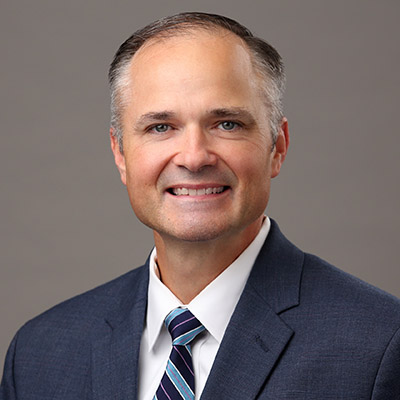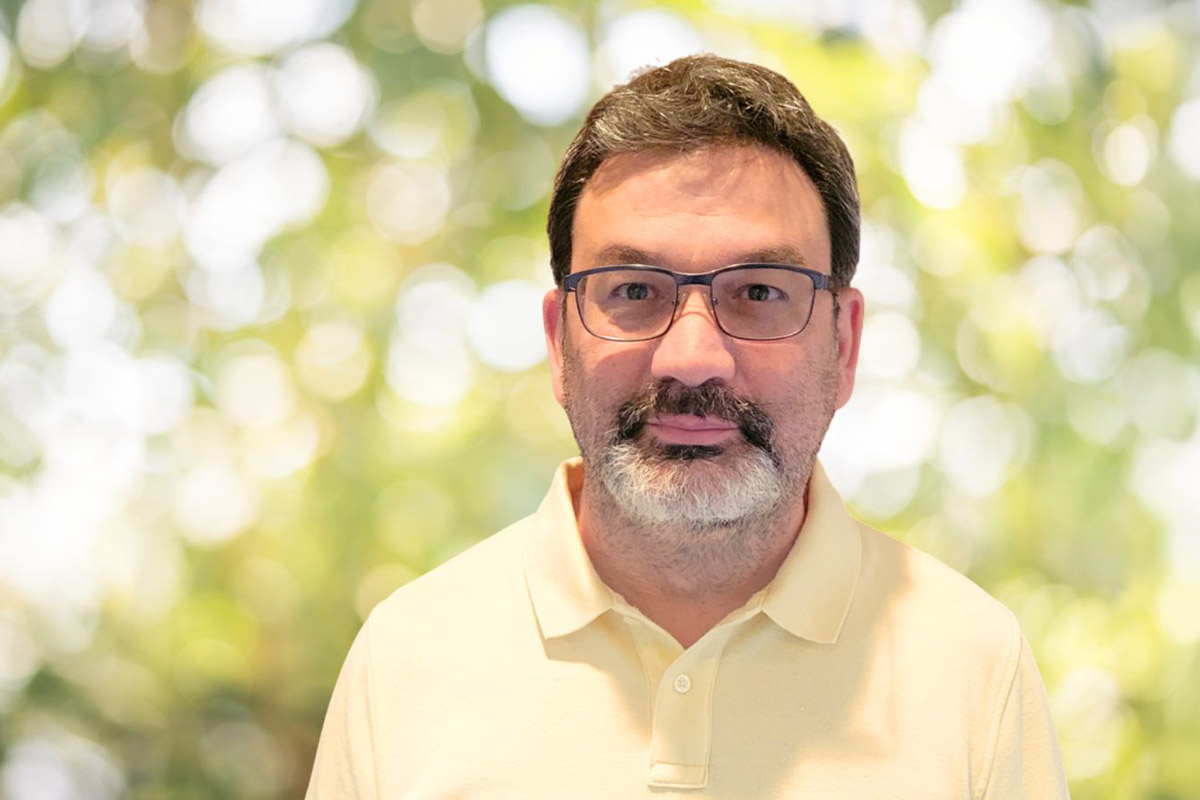After chemotherapy and radiation, his care team had the best news of all: “We’re going to use the ‘C’ word for you here, because you’re cured.” They could find no recurrence of the cancer. And he didn’t need any surgery after all.
When he was 47 years old, John Saleh contracted giardia during a camping trip in the Northeast. The intestinal infection caused uncomfortable diarrhea, stomach cramps, gas and nausea. After toughing it out for a few weeks, he decided to get it checked out.
“The GI doctor prescribed me pills to clear it up,” Saleh says. After completing the course of treatment, the follow-up visit was positive, and the medication seemed to have eradicated the infection. “The doctor said everything looks good. Your scans look good. Your tests look good. But we’re going to do a colonoscopy to make sure there’s no damage to your colon. I said, ‘Okay, let’s do that.’”
What came next was the shock of a lifetime. Saleh recalls, “The doctor said, ‘It’s colon cancer. We need to act as soon as possible.’” He adds, “It was just off the wall, out of the blue.”
Watch and wait
At Winship Cancer Institute of Emory University, Saleh met with doctors who would become key partners in ensuring his future health: Colorectal surgeon Patrick Sullivan, MD, FACS, medical oncologist Olatunji B. Alese, MD, Winship’s director of gastrointestinal oncology, and radiation oncologist Pretesh Patel, MD.
From the start, Saleh was impressed — and relieved — that the team had a plan of action. They presented him with two treatment options and left it entirely up to him to decide which option to pursue. There was what was considered the “gold standard”: start with chemotherapy combined with radiation, followed by surgery to fully remove the rectum and attach a colostomy bag for waste collection. The scan results suggested that Saleh’s cancer was in an early stage, so the medical team told him that he could be a good candidate for a second option, which at the time was still a new protocol Winship began providing in 2017 and referred to as “Total Neoadjuvant Therapy (TNT) with a good chance of organ (rectum) preservation based on watch and wait.”
First proposed in 2009 by Brazilian colorectal surgeon Angelita Habr-Gama, MD, the watch and wait approach is an alternative that has shown impressive results. With this approach, the patient is given chemotherapy and radiation (TNT) and then closely monitored. If the cancer responds to these treatments, surgery may not be needed.
Saleh discussed the options with his wife, and they agreed that TNT followed by watch and wait was the way to go. “This sounded like an approach we wanted to do because we are the types of people who like to take minimally invasive actions on our body. We prefer to not have surgery.”

Patrick Sullivan, MD, FACS
Sullivan explains the thinking behind the watch and wait approach. For patients with locally advanced rectal cancer (cancer that has spread outside the rectum to nearby tissue or lymph nodes but not to other parts of the body), the watch and wait approach means closely monitoring them with MRI, endoscopy and serum markers rather than immediately operating on them and leaving them with a permanent stoma (an artificial opening in the body to divert waste) and the difficulties that sometimes accompany it.
He says, “If you had 100 patients with locally advanced rectal cancer and treated them with chemotherapy and radiation for about six months in total, and you watch those patients, about half of them will have a complete clinical response. A complete clinical response means there’s no evidence of the tumor, the MRI shows only a scar inside the rectum and there’s nothing on the CEA test [CEA tests are used to monitor cancer treatment and recurrence by measuring levels of the carcinoembryonic antigen (CEA) protein]. Those patients then go on for watch and wait.”

Olatunji B. Alese, MD
To appreciate the radical improvement in rectal cancer treatment that watch and wait represents, Alese says, “I’ve actually had patients prior to the adoption of watch and wait who told me they would rather die from the cancer than live with a colostomy bag for the rest of their lives. For them, that is a major quality-of-life issue.”
Historically, Alese says that rectal cancer has been managed with multiple modalities, including radiation, chemotherapy and surgery. “But we’ve come a very long way in personalizing care for each patient. We are able to spare a good number of patients not just radical surgery, but also radiation. And for those with the mismatch repair deficient type of colorectal cancer, they can be spared all three: surgery, radiation and chemotherapy. Immunotherapy is the way to go for most of the small population of patients with the mismatch repair deficient type of colorectal cancer.”
Alese points out that offering patients innovative treatment options like watch and wait is second nature for Winship. “As the only NCI-designated Comprehensive Cancer Center in the state of Georgia, we are always at the forefront when it comes to adopting and developing innovative new treatments. We are fully invested in not just making sure that our patients are among the first to benefit from recent advances, but also in helping to write the clinical guidelines.”
Daring to say “cure”
Saleh recently finished up the last of his twice-yearly “probe events,” as he calls the CT scan, MRI and colonoscopy he has been having for the past five years. This time his care team had the best news of all: “It’s been accurate for five years,” he says they told him, “And we’re going to use the ‘C’ word for you here, because you’re cured.” They could find no recurrence of the cancer. And he didn’t need any surgery after all. “They basically said, ‘You got a clean bill of health.’”
Saleh says he will continue getting an annual colonoscopy for the next three or four years “just to make sure we’re safe and comfortable with it.” After that, he says Sullivan told him he can go back to getting one every three or four years.
For most men and women at average risk for colorectal cancer, the American Cancer Society recommends getting a regular colonoscopy beginning at age 45, and even younger for those with an increased risk because of family history of cancer, a personal history of inflammatory bowel disease or other factors.
“Get screened,” says Sullivan. “Ideally, get a colonoscopy, but if that doesn’t work for you, get screened with a stool-based test. If you develop signs and symptoms, get checked out. Don’t ignore symptoms such as bleeding.”
He adds, “If you get diagnosed with colorectal cancer, make sure you go to a place like Winship with a multidisciplinary team of men and women who are specialized in treating this disease, dedicated to taking care of you and apprised of the most recent data regarding watch and wait for rectal cancer. And if you come to Winship, you have a good shot at potentially avoiding surgery.”
Care tailored to your needs
Care for patients with colorectal cancer at Winship includes leading cancer specialists collaborating across disciplines to tailor treatment plans to each patient’s needs; innovative therapies and clinical trials; comprehensive patient and family support services; and a care experience aimed at easing the burden of cancer.

